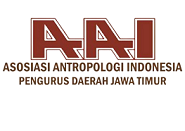Collaborative Learning Action Cell (CLAC) mentoring program to self-efficacy of the out-of-field senior high school teachers
Downloads
Teachers teaching not their field of specialization is unavoidable; thus, structural support must be in place so that the school supports these teachers. Considering this prevalence, the study aimed to determine the effects of the collaborative learning action cell (CLAC) mentoring program on the self-efficacy of the out-of-field Senior High School (SHS) teachers of New Lucena National Comprehensive High School during the second semester of the academic year 2018-2019. This action research utilized an experimental method specifically, the one-group pretest-posttest design. The participants of this study were the purposively selected 12 out-of-field SHS teachers. The research instrument adopted was the Ohio State teacher efficacy scale (OSTES) to capture a broad range of capabilities necessary for good teaching. The results of the study revealed that the level of self-efficacy of the out-of-field SHS teachers is "low" prior to the intervention and "high" level after exposure. Furthermore, the teachers' self-efficacy level significantly increased after exposure to the program. Thus, the CLAC mentoring program is an alternative program to increase the level of self-efficacy of the out-of-field SHS teachers. The research study calls for the importance of formulating a school-initiated intervention that will guide efforts to assist out-of-field teachers.
Chong WH & Kong CA (2012) Teacher collaborative learning and teacher self-efficacy: The case of lesson study. The journal of experimental education 80 (3):263-283.
DeMonte J (2013) High-quality professional development for teachers: Supporting teacher training to improve student learning. Center for American Progress.
Devos C (2012) The role of self-aspect importance and social working environment on beginning teachers' self-efficacy and feelings of depression. UCL-Université Catholique de Louvain, Louvain-la-Neuve, Belgique.
Dinham S (2013) The quality teaching movement in Australia encounters difficult terrain: A personal perspective. Australian Journal of Education 57 (2):91-106.
Du Plessis AE, Gillies RM & Carroll A (2014) Out-of-field teaching and professional development: A transnational investigation across Australia and South Africa. International journal of educational research 66:90-102.
Fraenkel JR, Wallen NE, & Hyun HH (ed) (2013) How to design and evaluate research in education: New York: McGraw Hill.
Gless J (2012) The big picture: Comprehensive systems of teacher induction. New Teacher Center.
Haseena VA & Mohammed AP (2015) Aspects of Quality in Education for the Improvement of Educational Scenario. Journal of Education and Practice 6 (4):100-105.
Hudson P & Hudson S (2016) Mentoring beginning teachers and goal setting. Australian Journal of Teacher Education 41 (10):48-62.
Janikula K (2017) Effects of Mentorship on Teacher Classroom Preparedness at the Secondary Level. Sophia, St. Catherine University repository. [Accessed 2022]. https://sophia.stkate.edu/maed/203.
Martin NK, Sass DA & Schmitt TA (2012) Teacher efficacy in student engagement, instructional management, student stressors, and burnout: A theoretical model using in-class variables to predict teachers' intent-to-leave. Teaching and Teacher Education 28 (4):546-559.
Mathur SR, Gehrke R & Kim SH (2013) Impact of a teacher mentorship program on mentors' and mentees' perceptions of classroom practices and the mentoring experience. Assessment for Effective Intervention 38 (3):154–162.
Morris DB, Usher EL & Chen JA (2017) Reconceptualizing the sources of teaching self-efficacy: A critical review of emerging literature. Educational Psychology Review 29 (4):795-833.
Nopriyeni, Prasetyo ZK & Djukr (2019) The implementation of mentoring-based learning to improve pedagogical knowledge of prospective teachers. International Journal of Instruction 12 (3):529–540.
Olesova L & Campbell S (2019) The Impact of the Cooperative Mentorship Model on Faculty Preparedness to Develop Online Courses. Online Learning 23 (4):192–213.
Onjoro V, Arogo RB & Embeywa HE (2015) Leadership Motivation and Mentoring Can Improve Efficiency of a Classroom Teacher and Workers in Institutions. Journal of Education and Practice 6 (15):1–14.
Pribudhiana R, Bin Don Y & Bin Yusof MR (2021) Determining the Influence of Teacher Quality toward Teacher Readiness in Implementing Indonesian Education Policy. Eurasian Journal of Educational Research 93:373-390.
Skaalvik EM & Skaalvik S (2015) Job Satisfaction, Stress and Coping Strategies in the Teaching Profession-What Do Teachers Say?. International education studies 8 (3):181-192.
Teachers' Sense of Efficacy Scale Date (n.d.) [Accessed July 1, 2018]. http://stelar.edc.org/instruments/teachers-sense-efficacy-scale.

This work is licensed under a Creative Commons Attribution-NonCommercial-ShareAlike 4.0 International License.
1. The authors agree to transfer the transfer copyright of the article to the Indonesian Journal of Social Sciences effective if and when the paper is accepted for publication. The authors can download the Copyright Transfer Agreement here.
2. The legal formal aspect of journal publication accessibility refers to Creative Commons Attribution-NonCommercial-ShareAlike 4.0 International License (CC BY-NC-SA).
3. Every publication (printed/electronic) is open access for educational purposes, research, and library. Other than the aims mentioned above, the editorial board is not responsible for copyright violation.

IJSS by Unair is licensed under a Creative Commons Attribution-NonCommercial-ShareAlike 4.0 International License.




















